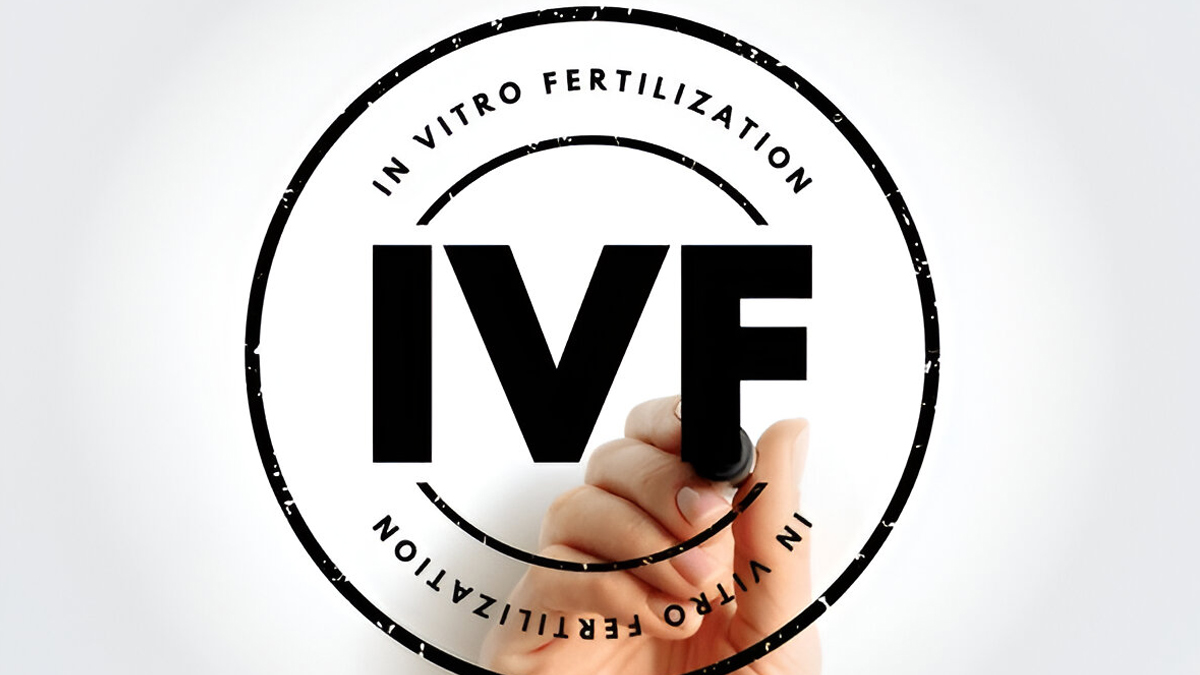
The IVF journey is one of hope, determination, and strength. Couples open themselves to the dream of parenthood with each cycle—sometimes after months or even years of hoping. However, not every effort is successful. Failed cycles, miscarriages early on, and lost embryos come with a special sort of grief: quiet, intimate, and often unspoken. In the midst of hormonal injections, scans, and medical protocols, what is sometimes overlooked is the emotional space couples need to process their loss, and the importance of creating that space with compassion and support.
Table of Content:-
We spoke to Dr Priya Khamatkar, Consultant – Fertility, Cloudnine Group of Hospitals, Navi Mumbai, Vashi, who explained how to create safe space for people dealing with IVF loss.
Understanding IVF Loss: A Silent Kind of Grief

"The emotional toll of IVF failure is real. Every cycle is not only a medical process; it's an expenditure of hope, energy, and feeling. Each embryo transfer is imbued with the vision of a child already conceived, a family already built in the imagination. When IVF fails to result in a pregnancy or results in miscarriage, the sorrow is frequently unseen, "said Dr Khamatkar. There is no ritual to signal the loss, no social blueprint for consolation. Many couples are told to “try again,” or reminded how far science has come, but what they truly need is for someone to acknowledge, “I see your pain. I’m here.”
A 2023 systematic review covering 503 women from 19 qualitative studies painted a powerful picture—infertility and IVF journeys carry internal trauma, anxiety, guilt, insomnia, and social withdrawal. Many felt failed by care systems for not receiving empathy or holistic support.
Also Read: Mental Health In Fertility: Expert Explains The Role Of Counsellors In IVF
Why Emotional Validation Matters
The pain of IVF loss can be compounded when it isn’t spoken about. Society often doesn’t recognise the grief that follows a failed cycle, leading many couples to internalise their feelings. This isolation is a block to healing. But when grief is recognised and accepted, it will start to unfold. A talk, a listening ear, a simple "That must be really hard" can offer relief. Knowing that one's feelings are observed and accepted is an empowering journey toward resilience.
The Role of Counselling in Healing

Grief isn't weakness—it's a normal reaction to love and loss. Most fertility clinics now acknowledge this and offer emotional counselling as part of the IVF process. Talking to an experienced counsellor can benefit couples by:
- Understand and express their emotions
- Navigate difficult conversations with each other or loved ones
- Release guilt, anxiety, or self-blame
- Rebuild emotional strength for future choices
Even one or two sessions with a counsellor experienced in fertility care can offer clarity and emotional relief.
Supporting Each Other as a Couple
"IVF is a journey undertaken together, and therefore is the resulting grief. But couples tend to grieve in different ways. One will want to discuss and speak, whereas the other will need to be left alone. One will sob, while the other will turn silent. These are normal differences, but communication is essential," said Dr Khamatkar.
Setting aside quiet time to check in with each other without expectations can be healing. A walk together, a shared journal, or even watching a favorite show can provide comfort. What matters most is reminding each other: “We’re in this together. I’ve got you.”
Also Read: Miscarriage And IVF: Timing And Considerations For Your Next Steps
The Role of the Care Team: More Than Medicine
Doctors, nurses, and embryologists are deeply involved in each couple’s story. When clinics offer empathy, it helps patients feel more than just another case file.
A considerate phone call after a cycle doesn't work, a recognition of emotional suffering, or the provision of counselling can work far in getting patients to feel held, not merely treated. Clinics where emotional wellbeing is integral to care build trust, ease, and long-term restoration.
Friends, Family, and the Power of Presence

Most couples who experience IVF don't feel like they can confide in friends and family. But to those who do know, simply being there with no judgement or pressure can be a big help.
Instead of advice, offer presence:
- “I’m so sorry you’re going through this.”
- “Would you like to talk about it, or just have company?”
- “I don’t know what to say, but I care.”
A kind message, a shared meal, or a silent hug can speak louder than words. You don’t need to fix the pain, you just need to show up.
Healing Isn’t Linear, but It Is Possible
Each couple handles loss in his or her own way. Some will want to try again sooner; others will require time to mourn, reflect, and rebuild. There's no time schedule. What's important is proceeding gently, with self and mutual kindness.
With time, the sorrow eases. Couples find joy, resilience, and often, new purpose again. Many proceed to become pregnant, through additional IVF cycles, donor procedures, or adoption. Others are at peace in redefining what parenting is for them.
What all these journeys have in common is the strength of the human heart, and its power to hope anew.
Bottomline
Dr Khamatkar concluded, "Behind each attempt at IVF is a tale of courage and love. A tale of two individuals deciding to attempt it, to open up their hearts, and to have hope in the potential for life. A failed cycle does not erase that tale, it enriches it. By making those spaces for sorrow safe, by holding space with emotion, and by talking about IVF loss with kindness, we grant that narrative the respect it is due."
Also watch this video
How we keep this article up to date:
We work with experts and keep a close eye on the latest in health and wellness. Whenever there is a new research or helpful information, we update our articles with accurate and useful advice.
Current Version
Sep 04, 2025 21:00 IST
Published By : Sushmita Sharma